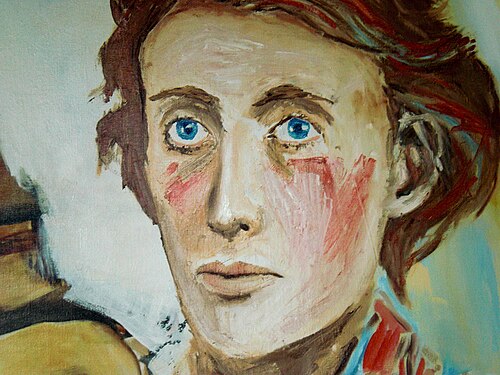A Short Introduction to the Modern Period
The Modern Age, or Modernism, in British literature is a period marked by radical experimentation, a break with traditional forms, and a sense of disillusionment with the certainties of the past. Spanning roughly from the late 19th century through the mid-20th century, this era was shaped by significant historical events, including the two World Wars, the decline of the British Empire, and rapid industrial and technological advancements. These developments catalyzed a cultural and intellectual upheaval that is reflected in the literature.

Historically, the Modern Age was deeply influenced by the trauma of World War I (1914-1918), which shattered the Victorian ideals of progress and stability. The war’s unprecedented devastation led to widespread disillusionment and a questioning of the values that had governed Western society. The subsequent interwar period saw economic turmoil, political instability, and the rise of totalitarian regimes, culminating in World War II (1939-1945). These events created an atmosphere of existential anxiety and uncertainty, which is central to Modernist expression.
Modernism in British literature is characterized by a rejection of traditional narrative structures, a focus on the inner workings of the mind, and an exploration of fragmented realities. This period saw the emergence of the stream-of-consciousness technique, unreliable narrators, and a fragmented, non-linear approach to storytelling, reflecting the complexities and uncertainties of the modern world.
Key figures in British Modernism include Virginia Woolf, James Joyce, T. S. Eliot, and D. H. Lawrence. Virginia Woolf’s works, such as Mrs Dalloway (1925) and To the Lighthouse (1927), exemplify Modernist experimentation with narrative form and psychological depth. Woolf’s stream-of-consciousness allows readers to experience the inner thoughts and emotions of her characters, often blurring the boundaries between past and present, reality and memory.
James Joyce’s Ulysses (1922) is one of the most influential works of Modernist literature, known for its innovative use of language, intricate structure, and exploration of the mundane as epic. Joyce’s novel reimagines Homer’s Odyssey within the context of a single day in Dublin, blending myth with the ordinary, and employing a wide range of literary styles.
T. S. Eliot’s The Waste Land (1922) is another cornerstone of Modernist literature, encapsulating the sense of fragmentation and despair that defined the post-World War I era. Eliot’s use of multiple voices, allusions to various literary and cultural traditions, and fragmented structure reflect the disintegration of a coherent worldview in the face of modernity’s chaos.
D. H. Lawrence, with works like Sons and Lovers (1913) and Women in Love (1920), explore the complexities of human relationships, sexuality, and the unconscious mind, often challenging social conventions and the moral certainties of the Victorian era.
Modernist literature is also marked by its engagement with new ideas in psychology, philosophy, and the arts. The influence of Sigmund Freud’s theories of the unconscious and Carl Jung’s archetypes can be seen in the psychological depth of Modernist characters and the symbolic complexity of their narratives. Philosophically, Modernism was influenced by existentialism and the works of thinkers like Friedrich Nietzsche, who questioned traditional moral and religious values.
The period also saw a significant shift in the role of the artist and the nature of art itself. Modernist writers often saw themselves as part of an avant-garde, challenging societal norms and seeking to create works that reflected the complexities of the modern world. The fragmentation of form and content, the exploration of subjective experience, and the rejection of conventional aesthetics were all part of this broader artistic movement.
The Modern Age in British literature is a period of innovation and experimentation, driven by the cultural, social, and intellectual upheavals of the early 20th century. The works of Modernist writers reflect the anxieties and uncertainties of their time, challenging traditional forms and ideas, and seeking new ways to represent the complexities of modern life. The legacy of Modernism continues to influence contemporary literature, making it a central period in the study of British literature.
